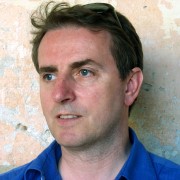Blog
Academic skills
Derek Bok, educator and former president of Harvard University (1971-1991 and 2006-2007) visited University College Roosevelt, then Roosevelt Academy, back in August 2009 to speak to a group of Dutch tertiary education policy makers about the effects and impact that his influential book Our Underachieving Colleges: A Candid Look at How Much Students Learn and Why They Should Be Learning More (2005) had had on the university world in the USA. I was asked to chair that meeting, which marked the start of a joint teaching excellence initiative between the aptly named Derek Bok teaching and learning centre at Harvard and UCR’s teaching and learning centre in Middelburg. Back then, I was both the head of the academic core department and the director of the UCR teaching and learning centre, so it seemed logical that I should chair the session. Bok’s book, which I recall consuming with great enthusiasm, was essentially a clarion call for all first-year university bachelor programmes to include a rigorous academic core: a core where students learned to speak well in public, to argue coherently and non-fallaciously in their papers, to write elegantly and clearly and, most important of all, to think critically. The three-hour session, which took place in the impressive raadszaal of the UCR main building, was supposed to be an exchange of ideas. But the policy makers who had come to Zeeland that day did not speak very much. Instead, they appeared to hang onto every syllable that left Bok’s lips, as though those words were nuggets of pure gold: a kind of pedagogical Crassus in reverse.
Sat in a large easy chair, Bok, who must have been in his eighties at the time, spoke softly throughout the meeting. He ended the session by standing and delivering a eulogy to tertiary education. One of the things he said in that speech was that every single day during his twenty-year tenure as president of Harvard University he had made use of his armoury of academic skills. In particular, he had employed critical thinking in all kinds of ordinary, daily situations. These, he told us, were the very skills that he had acquired as a first-year undergraduate student back in the late 1940s in Stanford, while taking his academic core courses. He added that without those skills he would not have been unable to function for as long as he did, and for as well as he did, in such a demanding post at the helm of the richest and most powerful university in the world.
He ended his speech with a clarion call to those Dutch university education policy makers who were present not to disenfranchise the young people of the Netherlands, and by default the Netherlands themselves, by withholding from them the tools that they so badly need to be successful in life, namely, the ability to speak well, to write clearly and to think critically. I left that meeting wondering what kind of effect it would have on Dutch tertiary education and how soon we would see a change, if indeed at all. But then I thought why wait for the arc of bureaucracy to make its slow bend towards what is necessary. It is the teachers who must make room for academic skills in their own classes. It is we who hold the keys to empowering our students. It is we who must be provocative in this vital matter of academic skills.

Michael Burke – Professor of Rhetoric – University College Roosevelt
 11 september 2014
11 september 2014
U moet ingelogd zijn om te reageren, gebruik het formulier aan de linkerkant om in te loggen met uw solis gegevens.


